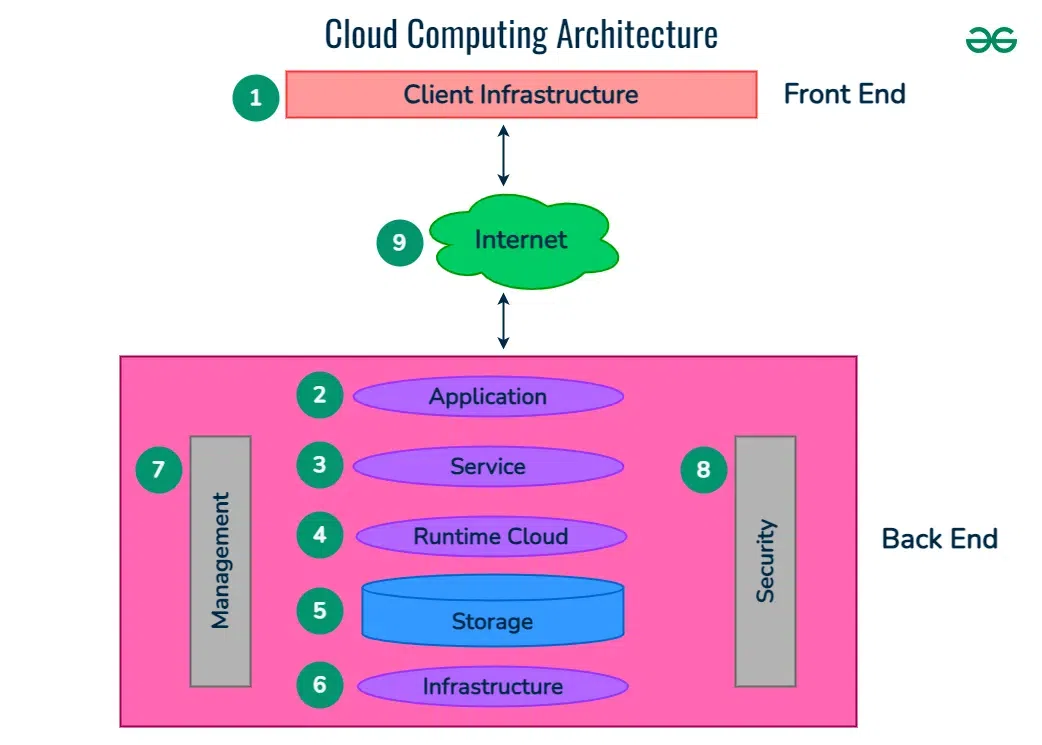Insightful Waves
Exploring the currents of everyday news and insights.
Cloud Computing: The Sky's Not the Limit
Explore how cloud computing is reshaping our world—discover the limitless possibilities that await beyond the clouds!
Understanding the Basics of Cloud Computing: What You Need to Know
Cloud computing refers to the delivery of computing services—including servers, storage, databases, networking, software, analytics, and intelligence—over the Internet, or 'the cloud'. This model allows for flexible resources management, offering various advantages such as cost efficiency, scalability, and remote accessibility. With cloud computing, businesses can access their data and applications from any location, fostering collaboration and making it easier to adapt to fluctuating demands. It's essential to recognize the three primary models of cloud computing: IaaS (Infrastructure as a Service), PaaS (Platform as a Service), and SaaS (Software as a Service), each catering to different organizational needs.
One of the key benefits of cloud computing is its ability to reduce operational costs and increase efficiency. By leveraging cloud services, businesses can avoid the upfront expenses associated with purchasing and maintaining physical servers and other hardware. Instead, they can pay for only the resources they use, allowing for better budget management. Furthermore, cloud computing ensures that data is backed up automatically and can be recovered easily, providing an additional layer of security. As more organizations make the shift to the cloud, understanding these fundamentals is vital for maximizing the potential of this transformative technology.

How Cloud Computing is Transforming Businesses: Opportunities and Challenges
Cloud computing is revolutionizing the way businesses operate by offering scalable resources, enhancing collaboration, and enabling remote work. Through solutions like Infrastructure as a Service (IaaS) and Software as a Service (SaaS), organizations can access powerful computational capabilities without the need for extensive on-premises hardware. This shift allows companies to allocate their resources more efficiently, potentially reducing operational costs. Moreover, cloud platforms facilitate real-time data sharing, driving innovation and improving decision-making processes in a rapidly changing market.
However, alongside these opportunities, there are significant challenges that businesses must navigate as they adopt cloud computing. One major concern is data security; with sensitive information stored off-site, companies must ensure robust compliance strategies and protection measures are in place. Additionally, organizations face potential downtime during cloud service outages, which can disrupt operations and lead to losses. Thus, while the benefits are compelling, thorough planning and risk management are essential for businesses to fully leverage the transformative power of cloud computing.
Is Cloud Computing Right for You? Key Considerations and Benefits
As businesses increasingly migrate to digital platforms, cloud computing has emerged as a pivotal solution to meet modern operational needs. However, determining whether cloud computing is right for you requires careful consideration of various factors. First, assess your organization's specific needs, including storage capacity, data security, and accessibility. Are you a startup looking for scalability or a larger enterprise aiming to optimize existing infrastructure? Understanding these requirements helps in evaluating the right cloud services—public, private, or hybrid—that can enhance your productivity and efficiency.
Furthermore, the benefits of cloud computing are manifold and can significantly impact your organization’s performance. Here are some key advantages to consider:
- Cost Efficiency: Reduce IT costs by eliminating the need for extensive hardware and maintenance.
- Scalability: Easily scale resources up or down based on real-time demand.
- Collaboration: Foster teamwork with easy access to shared resources from anywhere.
Assessing these benefits in the context of your organizational goals can provide clarity on whether cloud computing is the right path forward.